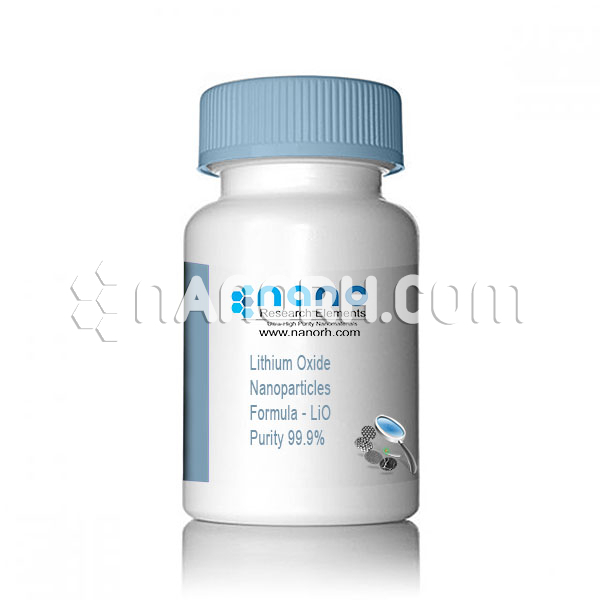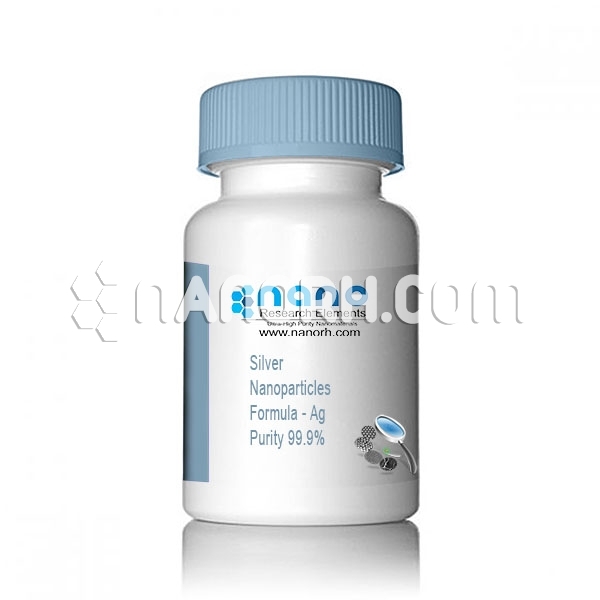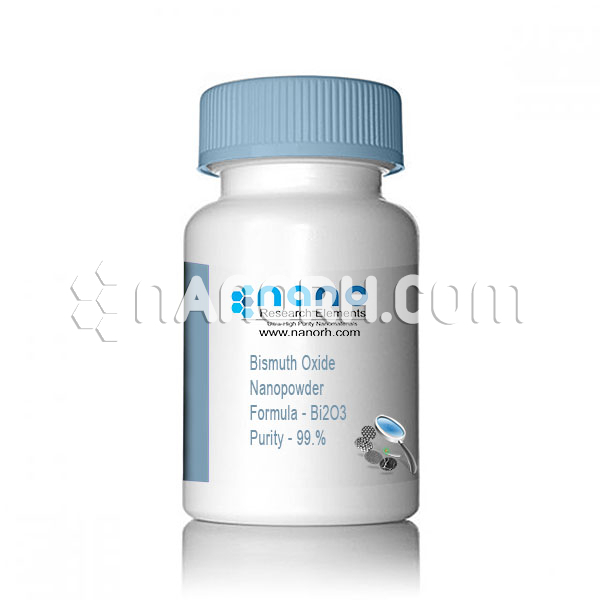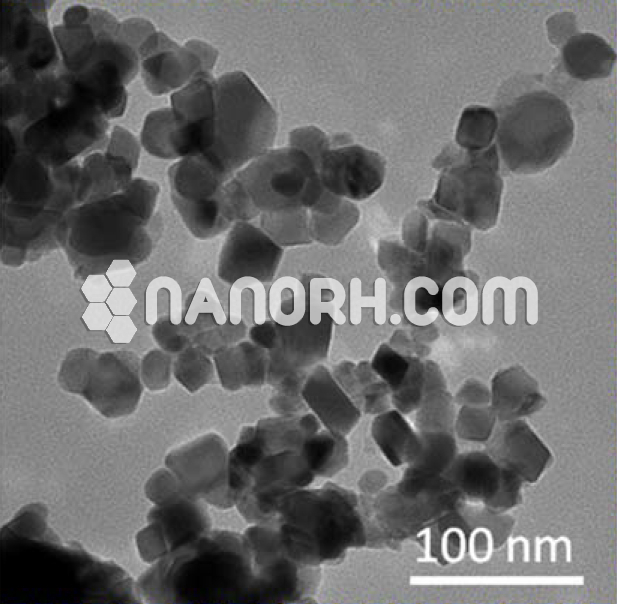| Lithium Oxide Nanoparticles | |
| Product Number | NRE-3033 |
| CAS No. | 12057-24-8 |
| Formula | Li2O |
| Molecular Weight | 22.88 / g/mol |
| APS | <100 nm (Can be Customized) |
| Purity | 99.9% |
| Colour | White |
| Density | 2.01 g/cm³ |
| Melting Point | 1,438 °C |
| Boiling Point | 2,600 °C |
Lithium Oxide Nanoparticles
Applications of Lithium Oxide Nanoparticles
Energy Storage and Batteries
Lithium-Ion Batteries: Lithium oxide nanoparticles are used in lithium-ion battery technology. They can act as a key component in the anode or cathode materials, enhancing the battery’s energy density, charge/discharge rate, and cycle stability. The high surface area of helps increase the efficiency of lithium ion insertion and extraction during charging and discharging cycles, improving battery performance.
Solid-State Batteries: Li2O are also considered for use in solid-state batteries, which are seen as the next generation of energy storage technologies. In these systems, lithium oxide can contribute to the development of solid electrolytes that are safer and more stable than traditional liquid electrolytes. This is particularly important in reducing the risks associated with lithium-ion batteries, such as thermal runaway.
Catalysis
Catalyst for CO₂ Reduction: Li2O have potential applications as a catalyst in the reduction of carbon dioxide (CO₂) to useful chemicals or fuels. Their high reactivity and basicity make them efficient in facilitating CO₂ conversion reactions, which are critical for addressing climate change and producing renewable energy.
Hydrogen Production: Lithium oxide nanoparticles are also used in the production of hydrogen through water splitting reactions. The reactivity of lithium oxide with water makes it a promising material for hydrogen evolution reactions (HER), which are essential for clean energy production in fuel cells and electrolysis systems.
Organic Reactions: Lithium oxide nanoparticles can serve as catalysts in various organic reactions, particularly those that require strong basic conditions. They are useful in reactions like dehydrogenation, alkylation, and hydrogenation in chemical manufacturing.
Environmental Protection
Carbon Capture and Storage (CCS): Lithium oxide nanoparticles are being researched for their ability to absorb CO₂ and convert it into stable compounds, such as lithium carbonate (Li₂CO₃). This application is of great interest for carbon capture and storage technologies aimed at reducing greenhouse gas emissions from industrial sources.




